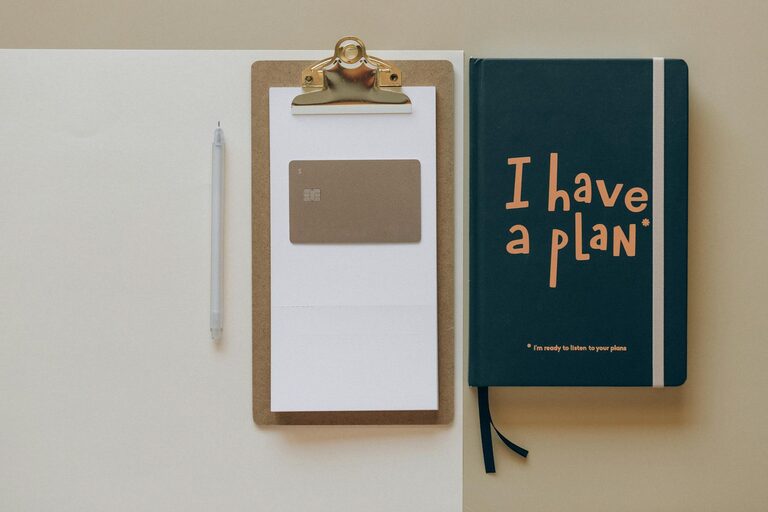
Managing your finances doesn’t have to be complicated or overwhelming. Building simple budget habits into your everyday life can make a big difference in reaching your financial goals. Whether you want to save more, reduce debt, or just feel more in control of your money, small changes add up over time.
In this post, we’ll explore practical and easy-to-follow budget habits that anyone can adopt. These habits will help you spend smarter, save consistently, and enjoy peace of mind with your financial planning.
Why Simple Budget Habits Matter
Budgeting is often thought of as something tedious or restrictive, but it is really about making informed choices that align with what matters most to you. Simple habits help you:
– Track your income and expenses without stress
– Avoid impulse purchases
– Set aside money for important goals
– Prevent financial surprises
– Build confidence in your money management
Setting up a complicated budget isn’t necessary if you stick to easy habits that become part of your daily routine.
Start With Tracking Your Spending
One of the best ways to take control of your finances is to know exactly where your money goes. This doesn’t require fancy apps or spreadsheets—just regular attention.
How to Track Spending Easily:
– Keep a small notebook or use a note app to record purchases daily
– Review bank or card statements weekly
– Categorize expenses (food, transport, bills, entertainment) to see what’s taking up most of your budget
– Identify non-essential spending to trim
Tracking doesn’t have to be perfect; the goal is awareness. As you spot patterns, you can make smarter choices.
Set a Realistic Weekly or Monthly Spending Limit
Once you understand your spending habits, try setting a spending limit based on your income and goals.
Tips for Setting Limits:
– Break your budget into categories with specific limits
– Prioritize necessities like rent, utilities, groceries
– Allocate a category for fun or discretionary spending to avoid feeling deprived
– Use cash envelopes or budgeting apps for easier control
Having a clear spending limit helps prevent overspending and encourages you to think twice before buying.
Automate Your Savings
Saving money regularly is a cornerstone of good budgeting. Automating this process removes the temptation to spend what you could save.
Simple Ways to Automate Savings:
– Set up automatic transfers from your checking to a savings account each payday
– Use apps that round up purchases and save the difference
– Plan for short-term and long-term goals by having separate savings buckets
Even small amounts add up, and automating ensures you save consistently without extra effort.
Plan Meals and Grocery Shopping Ahead
Food costs can be a significant part of your budget, but planning meal times and shopping wisely can help you save.
Meal Planning Habits:
– Make weekly meal plans based on what you already have at home
– Create grocery lists to avoid impulse buys
– Buy in bulk for staples
– Cook at home more often instead of eating out
Planning ahead reduces waste, saves money, and encourages healthier eating habits.
Review Subscriptions and Recurring Charges
Subscriptions for streaming, magazines, apps, and memberships can quietly drain your budget if you’re not careful.
What to Do:
– List all your subscriptions and recurring payments monthly
– Cancel those you no longer use or need
– Look for cheaper alternatives if possible
Regular review of these charges frees up money for other priorities.
Practice Mindful Spending
Mindful spending means making intentional purchasing decisions rather than buying on impulse.
Tips for Mindful Spending:
– Pause before purchases; give yourself 24 hours to decide if it’s necessary
– Ask yourself if the item fits your budget and financial goals
– Avoid shopping when stressed or bored, which can trigger impulsive buys
Mindfulness helps you value what you spend on and reduces buyer’s remorse.
Use Cash When Possible
Using cash instead of cards can make spending feel more tangible and help you stick to your budget.
Benefits and Tips:
– Withdraw a set amount of cash at the start of the week for discretionary spending
– Once the cash is gone, avoid using cards for extra purchases
– This visual limit keeps spending in check
Cash budgeting is a simple but effective tool to control impulse purchases.
Plan for Irregular Expenses
Not all expenses are monthly bills. Irregular expenses like car maintenance, gifts, or home repairs can upset your budget if unplanned.
How to Handle Them:
– Estimate these costs annually and divide by 12 to create a monthly saving goal
– Keep this amount in a separate “buffer” savings fund
– This reduces financial stress when unexpected bills come up
Being prepared means fewer surprises and a steadier budget.
Reflect and Adjust Regularly
Finally, budgeting is a flexible process. Make it a habit to review your budget regularly and adjust your habits as needed.
How to Reflect:
– Set a time each month to review your spending and saving progress
– Celebrate small wins to stay motivated
– Modify your budget if your income or expenses change
Consistent reflection creates a healthier financial mindset over time.
—
In Summary
Building simple budgeting habits is all about consistency and awareness. Start small by tracking your spending, automating savings, and planning purchases wisely. Over time, these habits become second nature and help you manage money effortlessly in everyday life.
Remember, budgeting is not about restriction but about empowering you to live within your means and achieve your financial goals with less stress.
Try incorporating these simple habits today, and watch your financial confidence grow!
